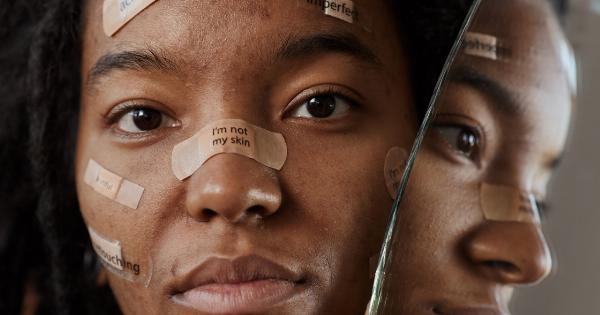Acne is a common skin condition that affects millions of people worldwide. It can cause physical discomfort and emotional distress, leading many individuals to seek treatment and solutions for their breakouts.
While various factors can contribute to the development of acne, such as genetics and hormonal changes, it is essential to recognize the influence of certain habits on acne formation. By understanding how lifestyle choices can affect your skin, you can take proactive measures to manage and prevent acne effectively.
1. Diet and Acne
There is a growing body of evidence suggesting a link between diet and acne. Research has shown that consuming a diet high in refined carbohydrates, sugar, and unhealthy fats may exacerbate acne symptoms.
These foods can cause a spike in blood sugar levels, leading to increased oil production and inflammation in the skin, which can contribute to the development of acne. On the other hand, diets rich in fruits, vegetables, and whole grains provide essential nutrients and antioxidants that promote optimal skin health.
2. Hygiene and Acne
Poor hygiene practices can aggravate acne. Failing to cleanse your skin regularly can result in a buildup of dirt, oil, and dead skin cells, which can clog your pores and contribute to breakouts.
Additionally, overwashing or using harsh cleansers can strip away the skin’s natural oils, leading to dryness and irritation. Finding the right balance in your skincare routine, including gentle cleansing and moisturizing, is crucial for maintaining healthy skin.
3. Makeup and Acne
Makeup can be both a blessing and a curse when it comes to acne. While it offers the ability to cover up blemishes and boost confidence, certain cosmetic products can clog pores and worsen acne.
It is essential to choose non-comedogenic or oil-free makeup products that are less likely to contribute to pore blockages. Additionally, regularly cleaning your makeup brushes and sponges is necessary to prevent the buildup of bacteria and potential skin irritation.
4. Stress and Acne
Stress has profound effects on various aspects of our health, including our skin. When we experience stress, our bodies produce hormones such as cortisol, which can trigger an overproduction of oil in the skin.
This excess oil can contribute to clogged pores and acne breakouts. Additionally, stress can compromise the skin’s natural barrier function, making it more susceptible to inflammation and bacterial infections.
Practicing stress management techniques, such as exercise, meditation, or engaging in hobbies, can help reduce acne flare-ups.
5. Sleep and Acne
Adequate sleep is crucial for overall health and wellbeing, including maintaining healthy skin. During sleep, our bodies repair and regenerate cells, including those in the skin.
Lack of sleep can disrupt this process and lead to increased inflammation and oxidative stress, which can worsen acne symptoms. Establishing a regular sleep routine and ensuring sufficient sleep duration can positively impact your skin’s health and reduce the likelihood of breakouts.
6. Smoking and Acne
Smoking not only poses significant health risks but can also contribute to the development and severity of acne. Smoking impairs blood circulation, depriving the skin of oxygen and essential nutrients necessary for its health.
Furthermore, smoking increases sebum production and triggers inflammation, both of which can contribute to the formation of acne. Quitting smoking can improve overall skin quality and reduce the occurrence of breakouts.
7. Exercise and Acne
Engaging in regular physical activity is beneficial for many aspects of our health, including our skin. Exercise improves blood circulation, delivering oxygen and nutrients to the skin while removing toxins through sweat.
However, excessive sweating can exacerbate acne if you fail to cleanse your skin properly after a workout. It is essential to wash your face and body with a gentle cleanser after exercising to remove sweat, bacteria, and excess oil.
8. Hormones and Acne
Hormonal changes play a significant role in the development of acne. Fluctuations in hormone levels, such as those experienced during puberty, menstruation, pregnancy, or menopause, can increase oil production and pore blockage.
Hormonal acne often presents as deep, cystic lesions on the jawline and lower face. While hormonal imbalances cannot be completely controlled through lifestyle habits alone, maintaining a healthy lifestyle, including a balanced diet, regular exercise, and stress management, can help mitigate hormonal acne symptoms.
9. Touching Your Face and Acne
Our hands come into contact with various surfaces and can carry bacteria, dirt, and oil. Touching your face frequently can transfer these impurities onto your skin and contribute to pore blockage and inflammation, leading to acne breakouts.
Additionally, picking at or popping existing pimples can prolong the healing process, increase the risk of infection, and potentially lead to scarring. It is crucial to avoid touching your face and to keep your hands clean to minimize the risk of acne exacerbation.
10. Environmental Factors and Acne
Environmental factors, such as pollution and humidity, can influence the development of acne. Air pollution, particularly in urban areas, can deposit harmful particles onto the skin’s surface, leading to inflammation and clogged pores.
Similarly, high humidity levels contribute to excess oil production and create an ideal environment for acne-causing bacteria to thrive. Cleansing your skin thoroughly and using products with antioxidant and pollution-fighting properties can help protect your skin from environmental damage.
Conclusion
Acne can be a frustrating skin condition, but understanding the link between your habits and acne formation can empower you to take control of your skin health.
By adopting a well-rounded approach that includes a balanced diet, proper skincare practices, stress management, adequate sleep, and avoiding harmful habits, you can minimize the occurrence and severity of acne breakouts. It is essential to consult with a dermatologist for personalized advice and recommendations on managing your specific acne concerns.

























